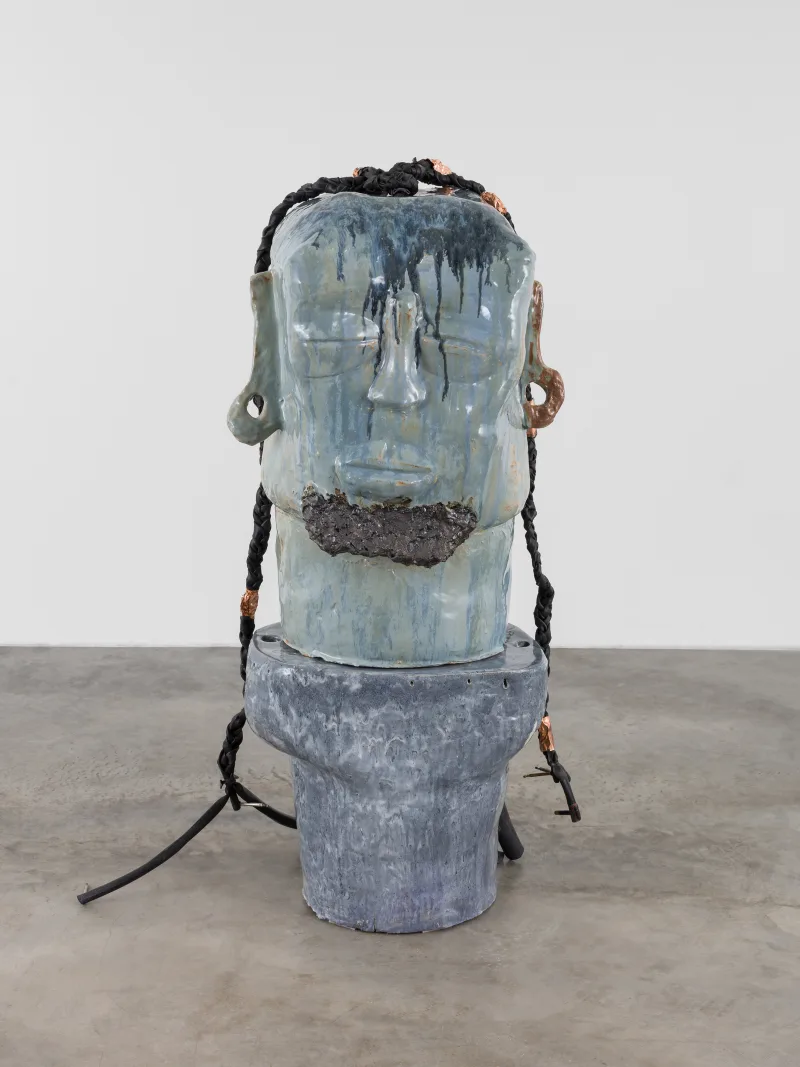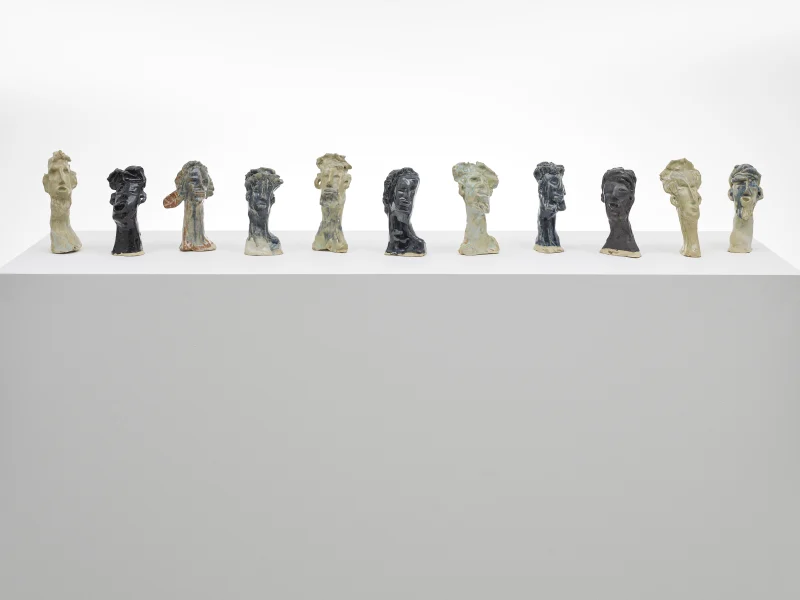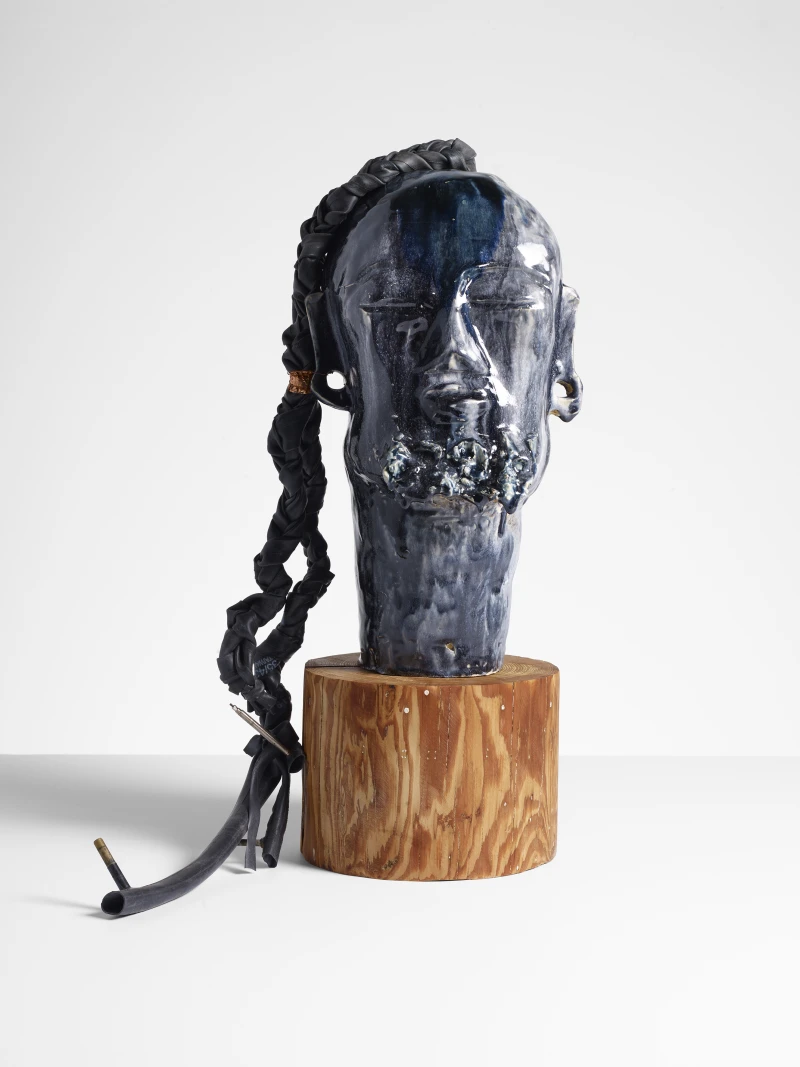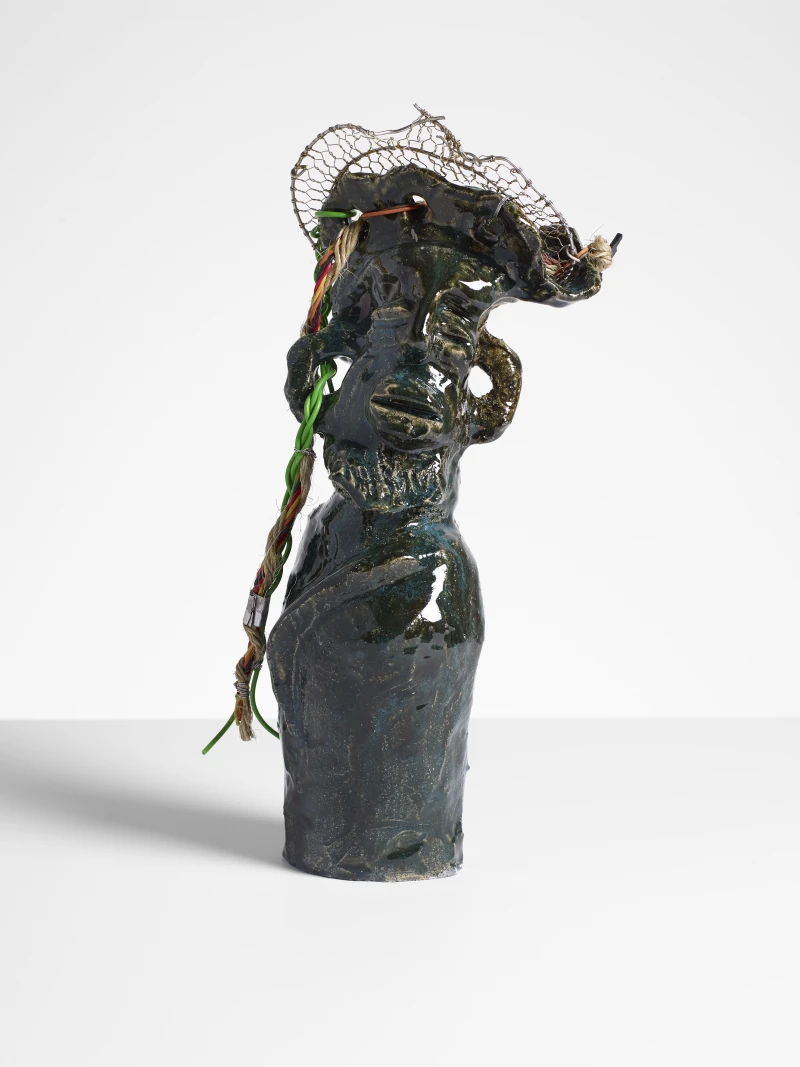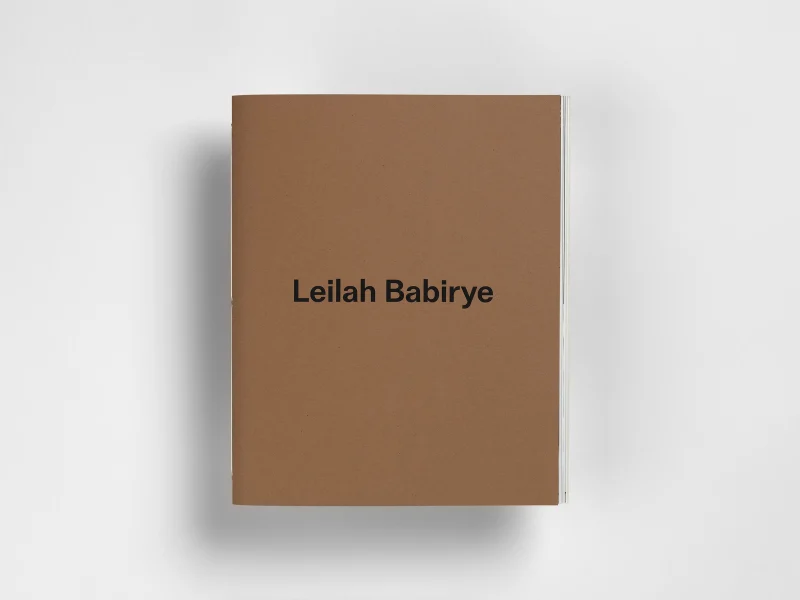
Leilah Babirye
Overview
“Through the act of burning, nailing and assembling, I aim to address the realities of being gay in the context of Uganda and Africa in general. Recently, my working process has been fuelled by a need to find a language to respond to the recent passing of the anti-homosexuality bill in Uganda.” – Leilah Babirye
Stephen Friedman Gallery is pleased to present Leilah Babirye’s first solo exhibition in the UK and Europe opening 4 June 2021. This exhibition brings together large-scale ceramic works, wooden sculptures, masks and vibrant paintings on paper. Babirye’s powerful works are a testament to her fiercely intelligent approach to the transformation of found materials. Her oeuvre examines the legacies of British colonialism in Uganda and the traditional clan systems of the kingdom of Buganda, encompassing progressive ideas regarding alternative forms of kinship, community and LGBTQI activism.
The artist fled Uganda in 2015 after being publicly outed in a local newspaper. In 2018, she was granted asylum in the United States with support from the African Services Committee and the New York City Anti-Violence Project.
Central to the exhibition is Babirye’s new series of ceramic works depicting figures that are imposing in scale. Babirye creates the works by coiling and moulding the clay by hand, gradually building the shape and height of the sculpture. After the work is fired, Babirye begins in a painterly fashion to splatter, drip and splash the work with glaze using unorthodox methods. Upon witnessing her artistic process, American art critic Jerry Saltz commented, “It is important to break the rules in ceramics more than in almost any other medium, because it is alchemy and of the earth and is belly-magic.”
This exhibition brings together large-scale ceramic works, wooden sculptures, masks and vibrant paintings on paper. Babirye’s powerful works are a testament to her fiercely intelligent approach to the transformation of found materials. Her oeuvre examines the legacies of British colonialism in Uganda and the traditional clan systems of the kingdom of Buganda, encompassing progressive ideas regarding alternative forms of kinship, community and LGBTQI activism.
The artist fled Uganda in 2015 after being publicly outed in a local newspaper. In 2018, she was granted asylum in the United States with support from the African Services Committee and the New York City Anti-Violence Project.
Central to the exhibition is Babirye’s new series of ceramic works depicting figures that are imposing in scale. Babirye creates the works by coiling and moulding the clay by hand, gradually building the shape and height of the sculpture. After the work is fired, Babirye begins in a painterly fashion to splatter, drip and splash the work with glaze using unorthodox methods. Upon witnessing her artistic process, American art critic Jerry Saltz commented, “It is important to break the rules in ceramics more than in almost any other medium, because it is alchemy and of the earth and is belly-magic.”
Babirye’s visceral large-scale wooden sculptures are whittled, welded, burned and burnished. The works are embellished with “jewellery” of found materials such as cans, nails and wire. Babirye’s choice to use discarded materials in her work is intentional – the pejorative term for a gay person in the Luganda language is ‘ebisiyaga’, meaning sugarcane husk. “It’s rubbish,” explains the artist, “the part of the sugarcane you throw out.”
While specific titles of her work profoundly reference her traditional Bugandan kinship system, Babirye imagines and creates her own community. By employing the term “kuchu”— a “secret word” of Swahili origin that those in the queer and trans community use to address each other — Babirye playfully imagines an alternate history unified in its support and protection of its people. The vividly coloured paintings on paper in the exhibition are portraits of real and imagined subjects from her native Uganda. Also presented are ceramic wall-based masks which are bathed in lustrous, painterly glazes and adorned with wire and found objects.
Describing her practice, Babirye explains: “Through the act of burning, nailing and assembling, I aim to address the realities of being gay in the context of Uganda and Africa in general.” Through this acknowledgment of the various rich cultural heritage and experiences that have shaped her life, Babirye’s work envisions a new society, one that is inclusive and supports all of its people with respect.
“Through the act of burning, nailing and assembling, I aim to address the realities of being gay in the context of Uganda and Africa in general. Recently, my working process has been fuelled by a need to find a language to respond to the recent passing of the anti-homosexuality bill in Uganda.” – Leilah Babirye
Leilah Babirye, Artist Studio Film, May 2021
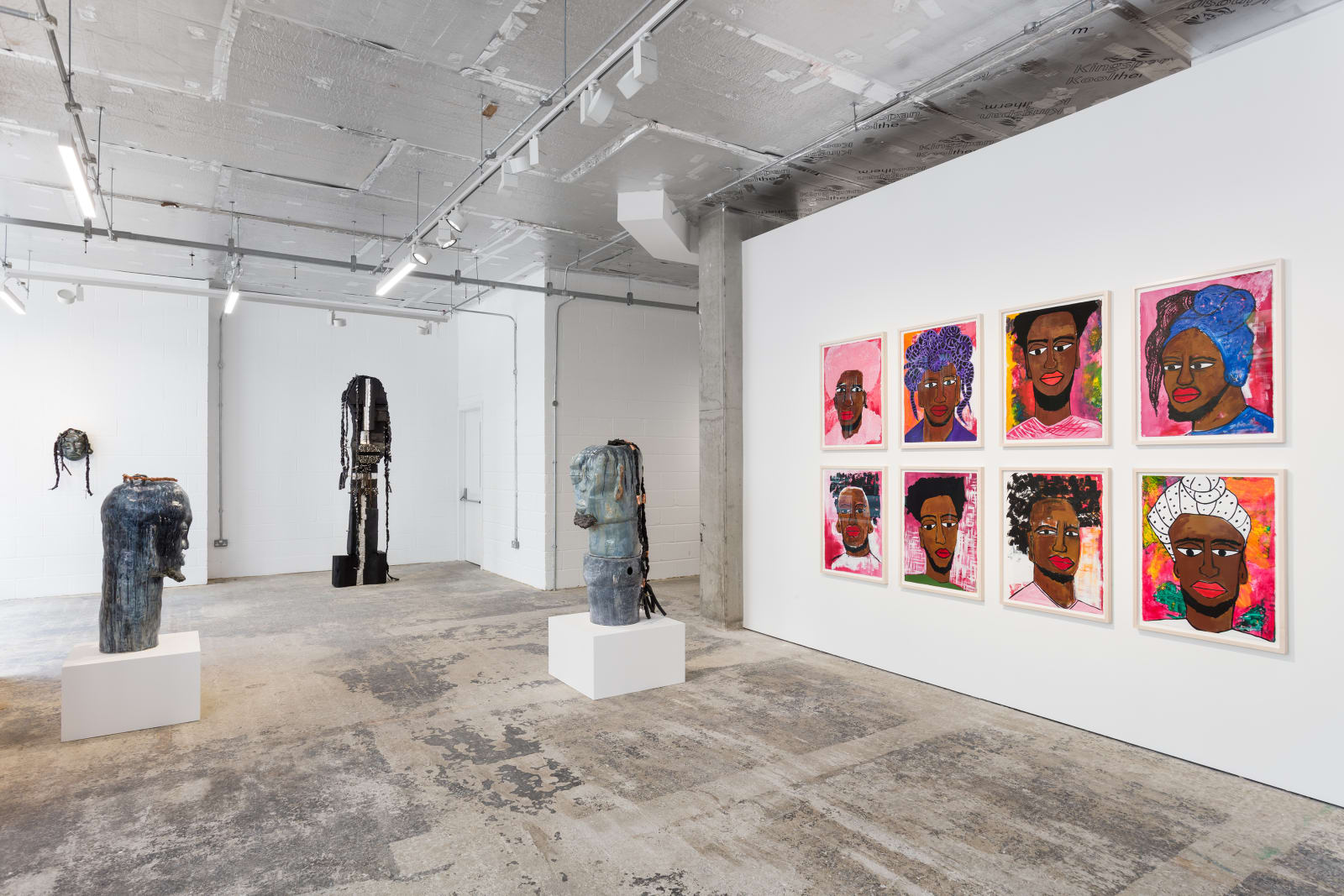
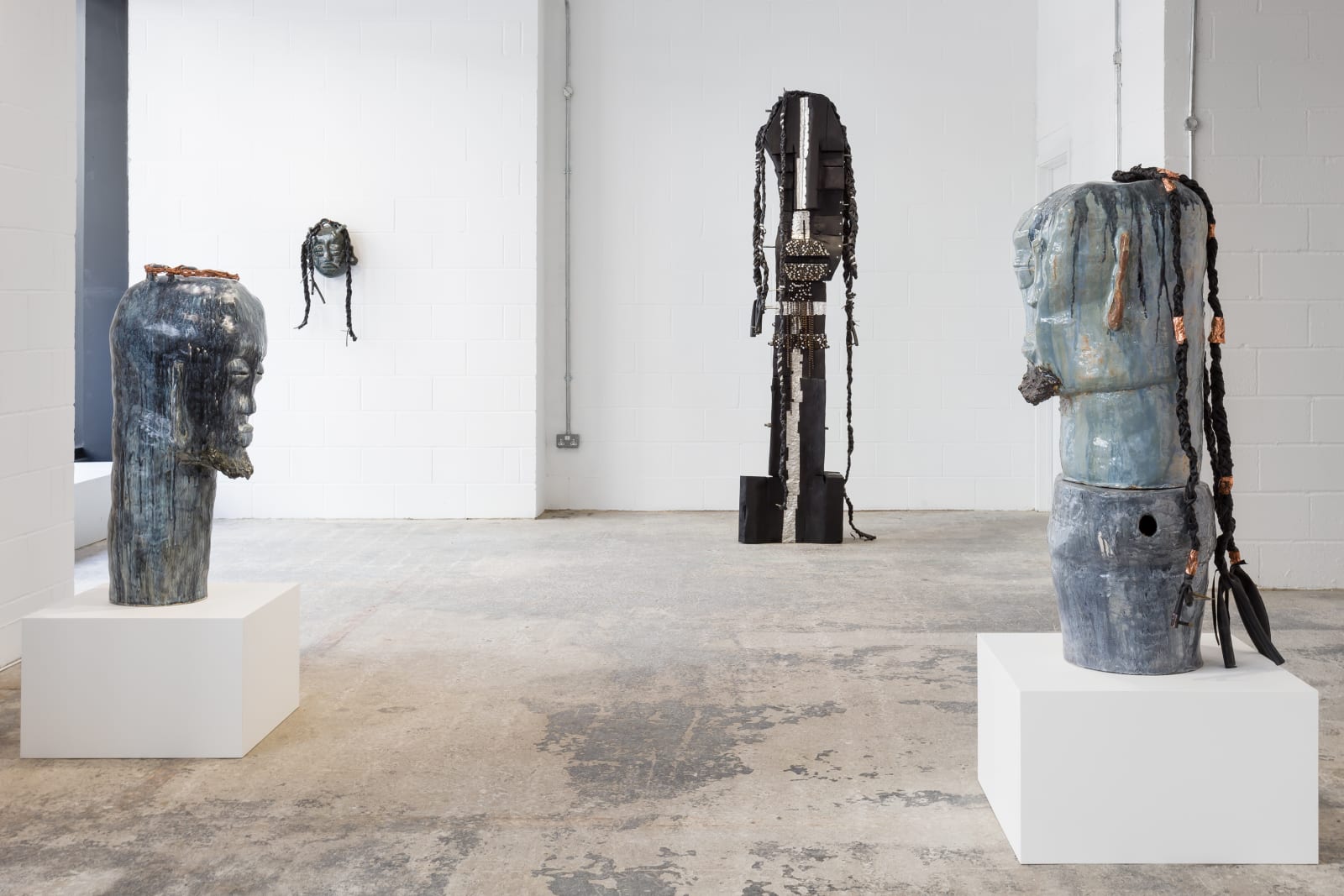
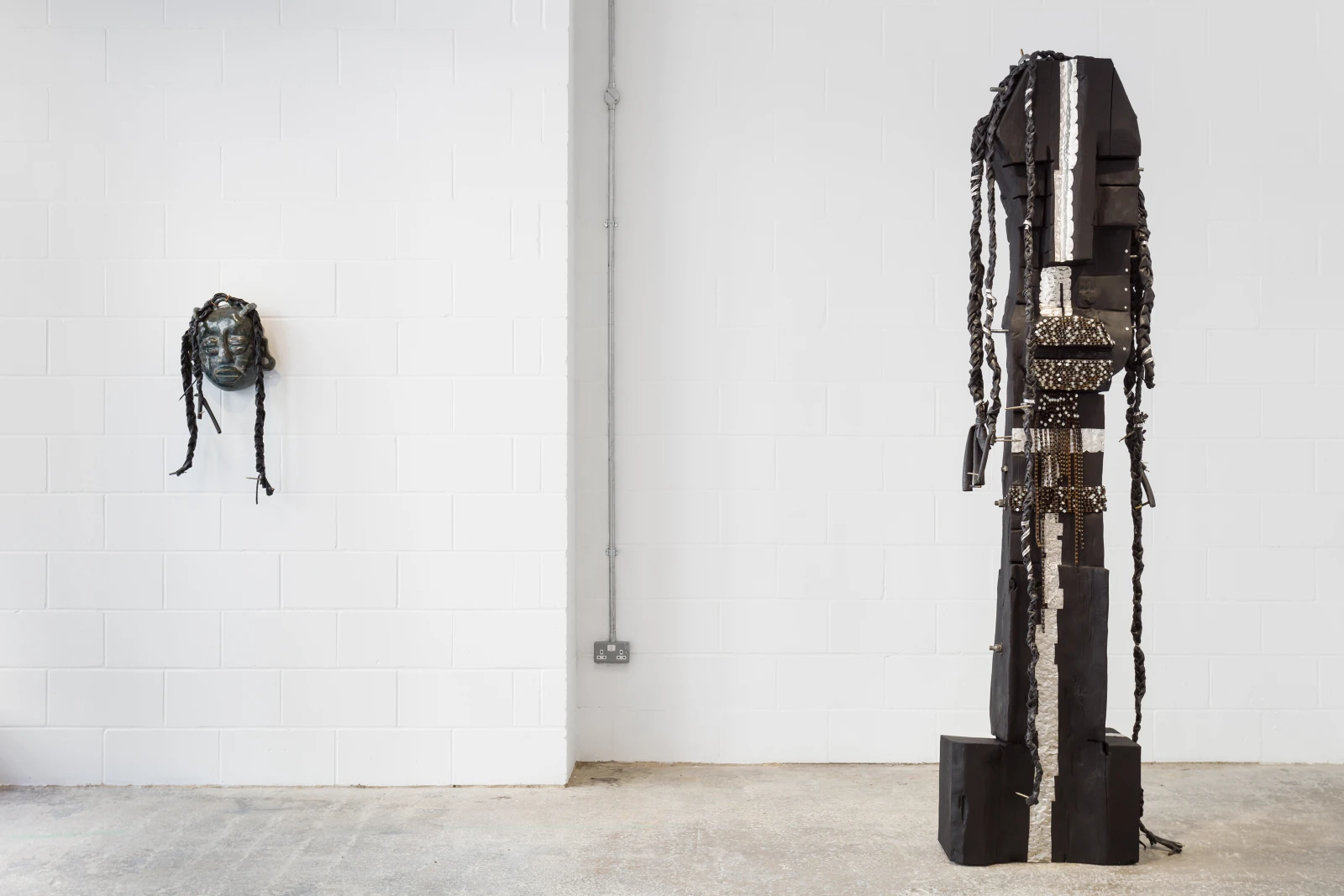
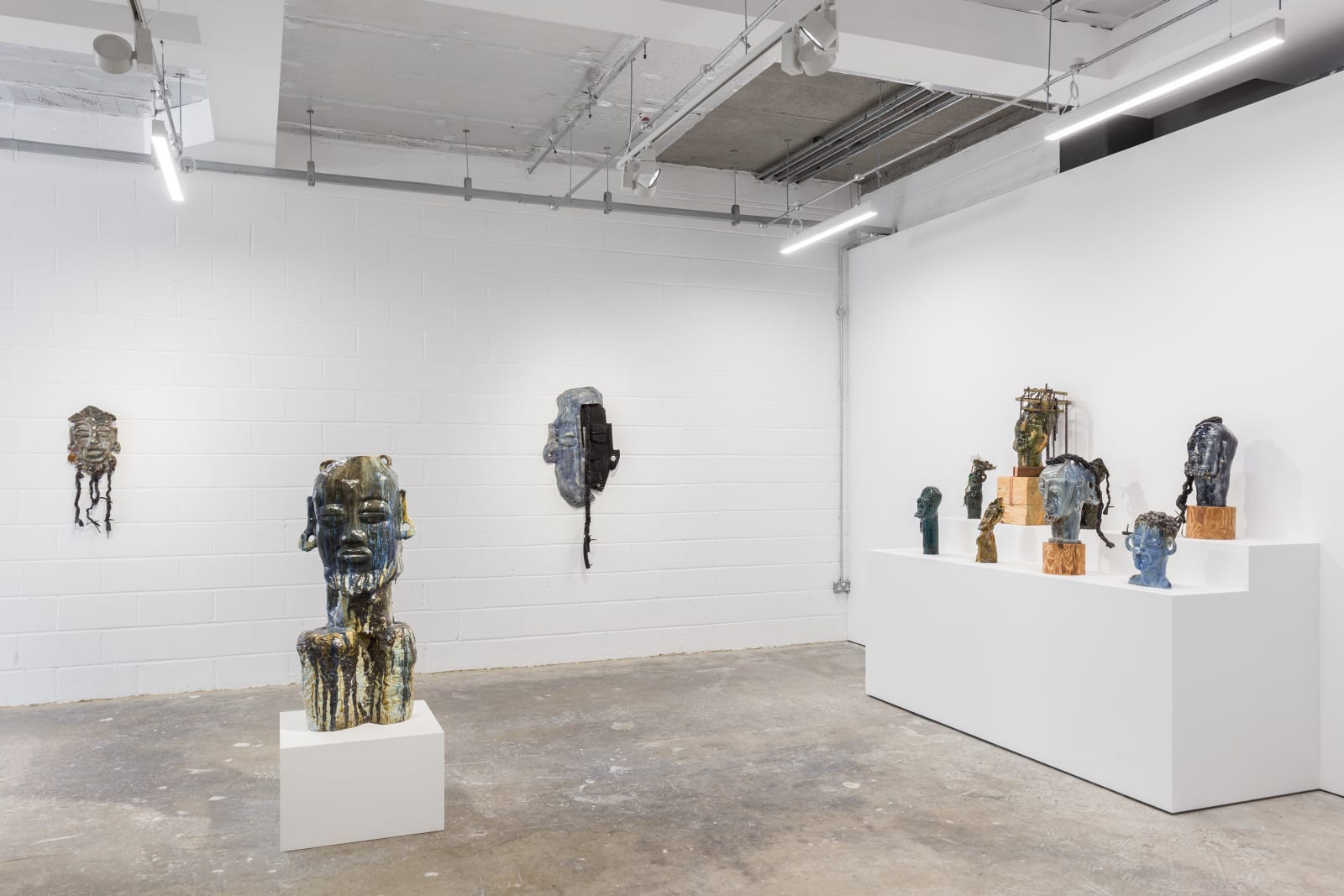
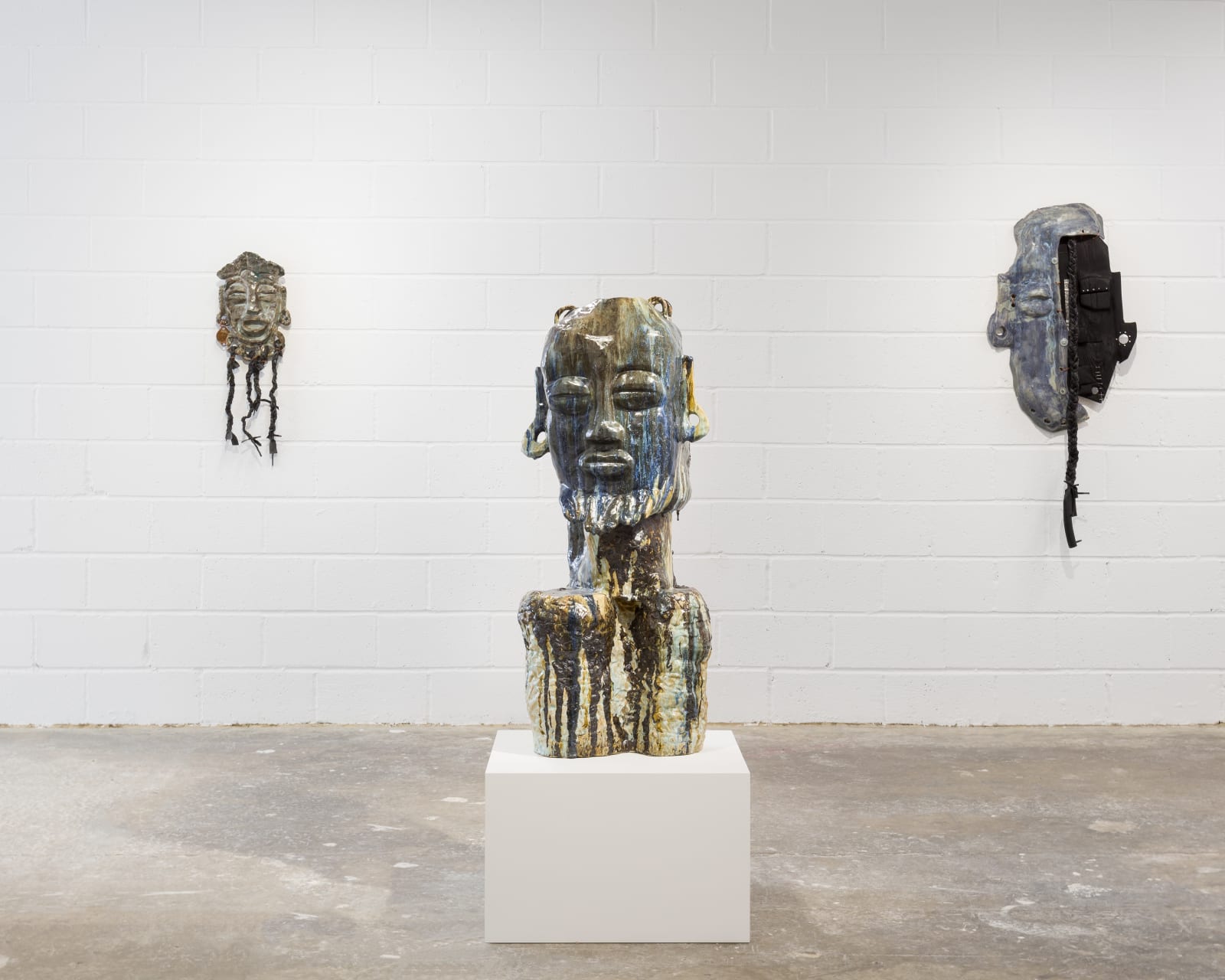
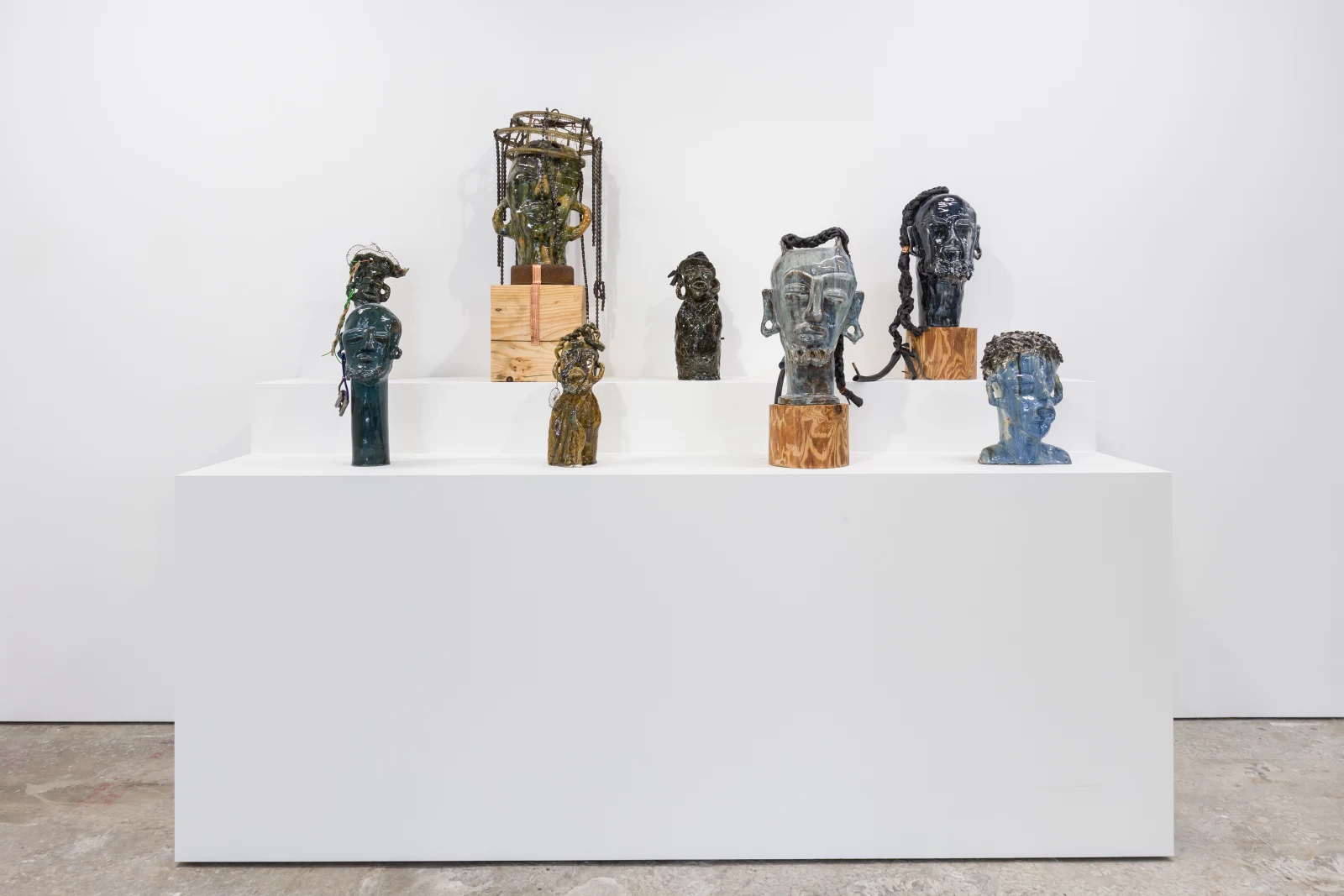
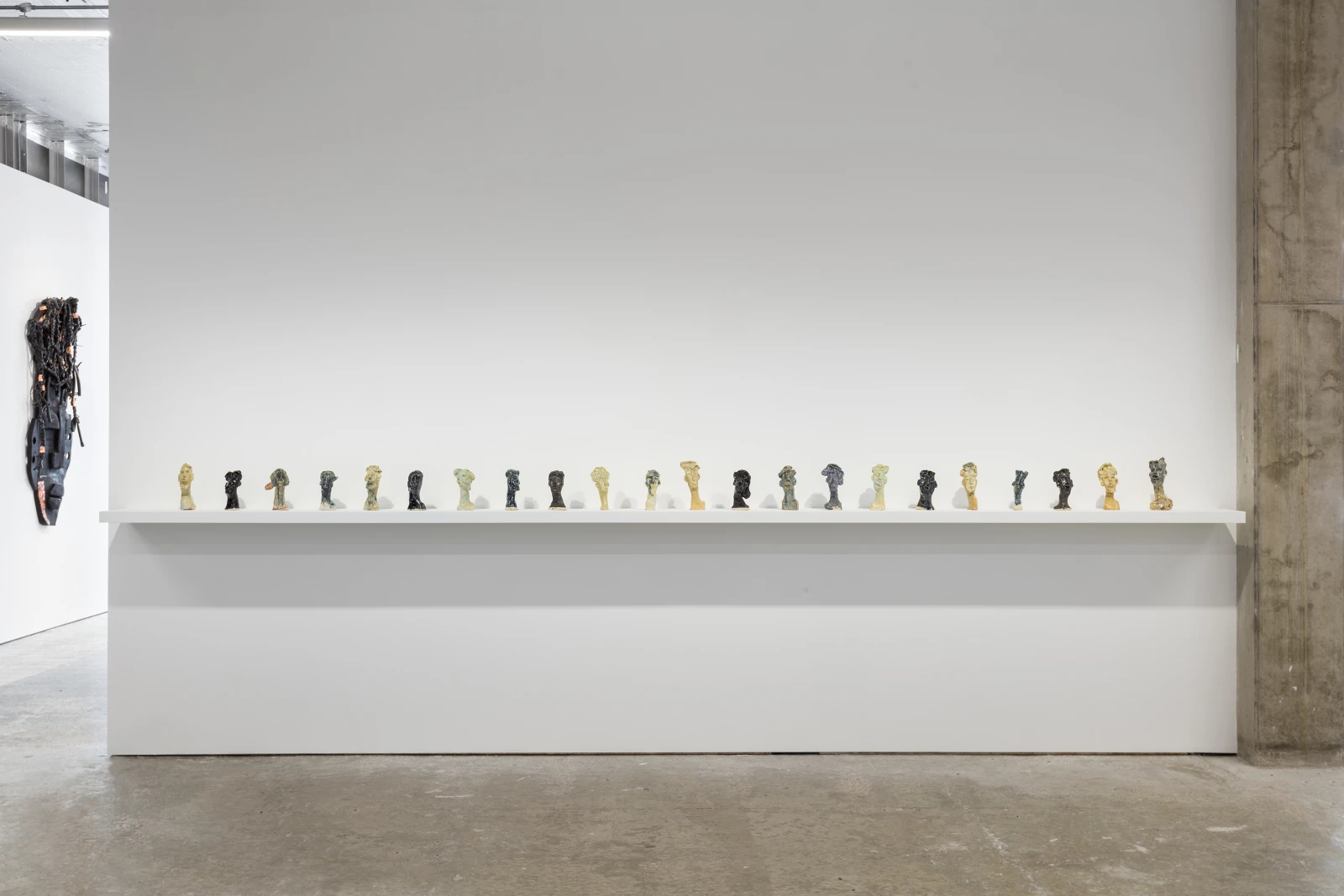
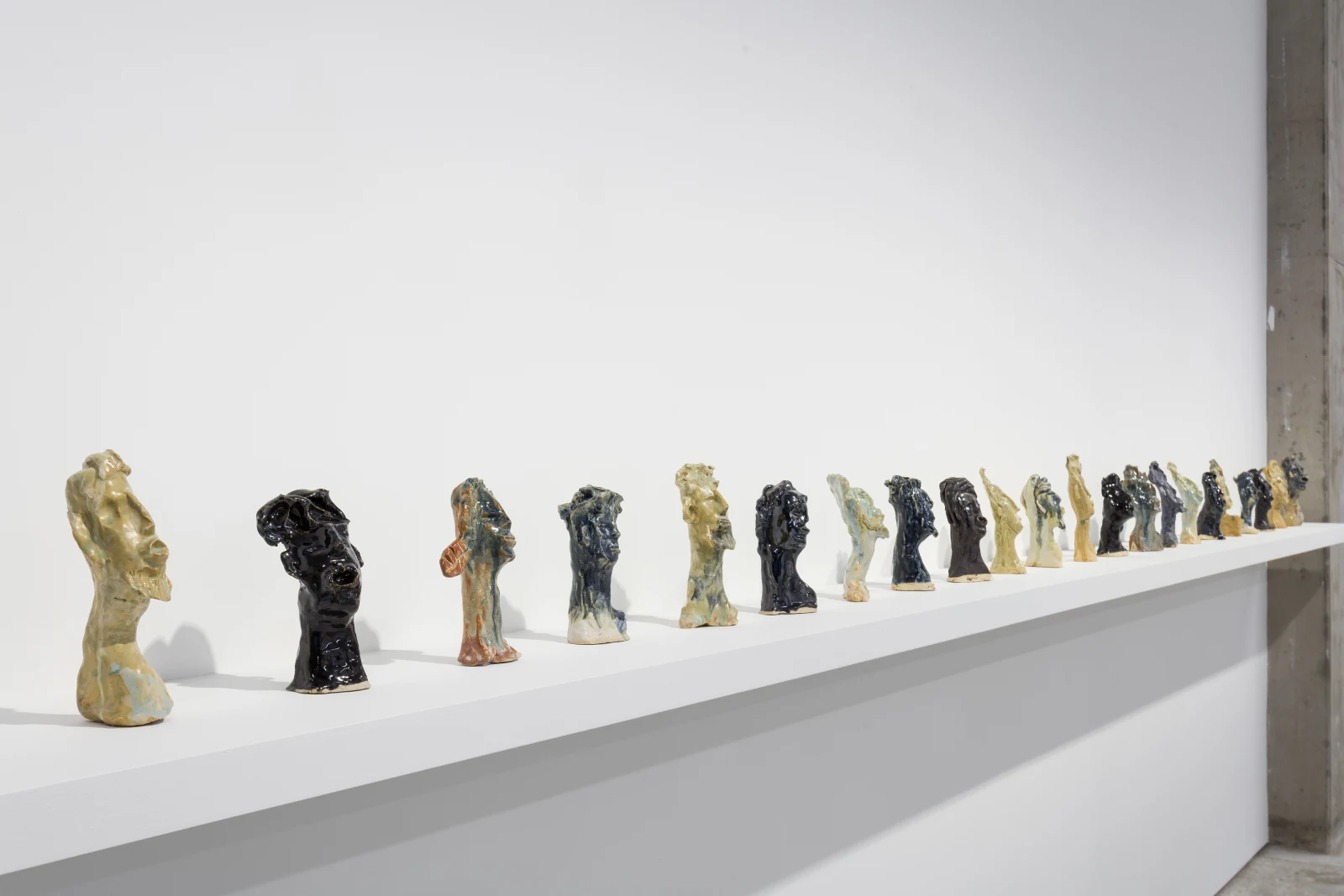
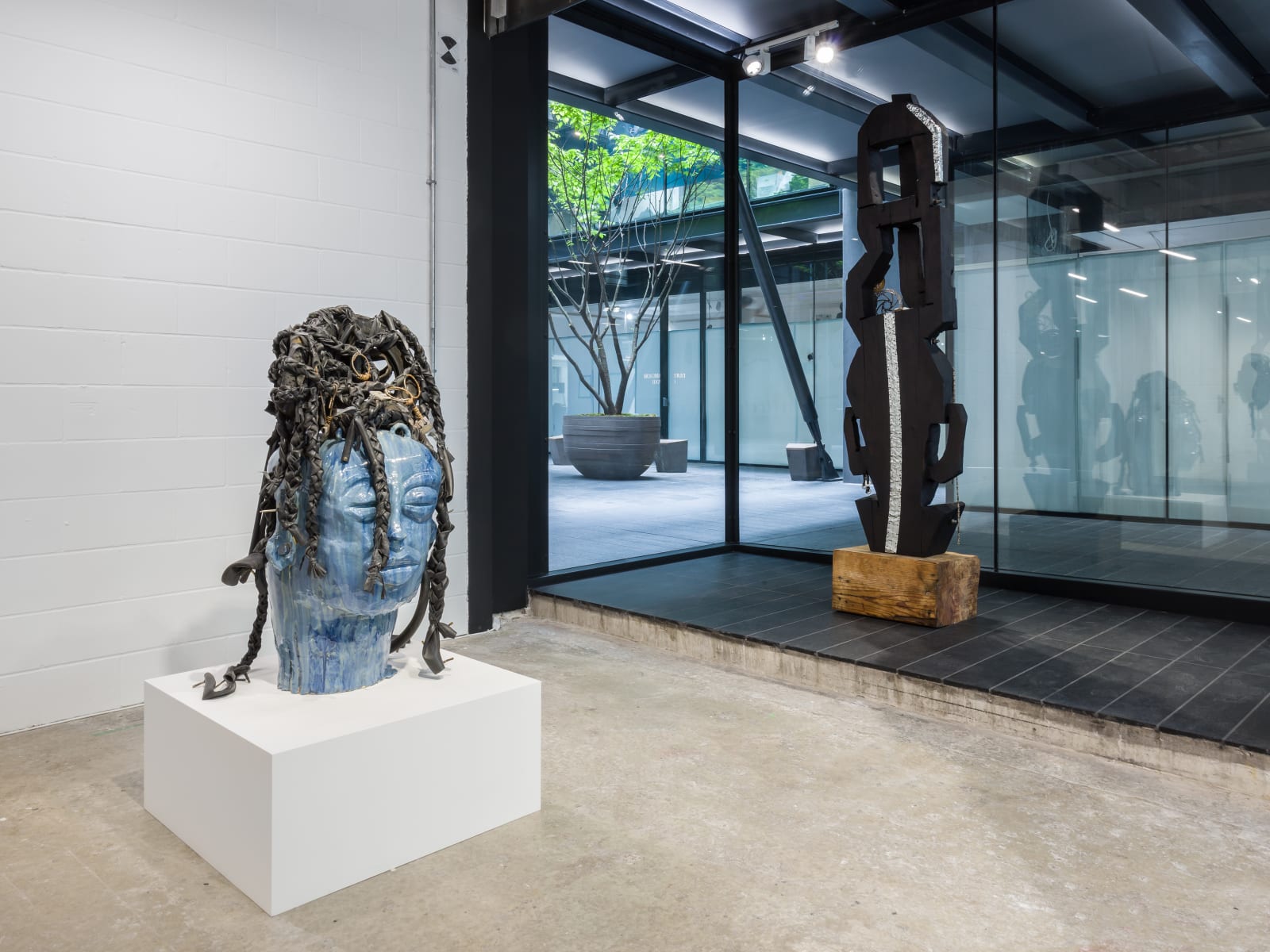
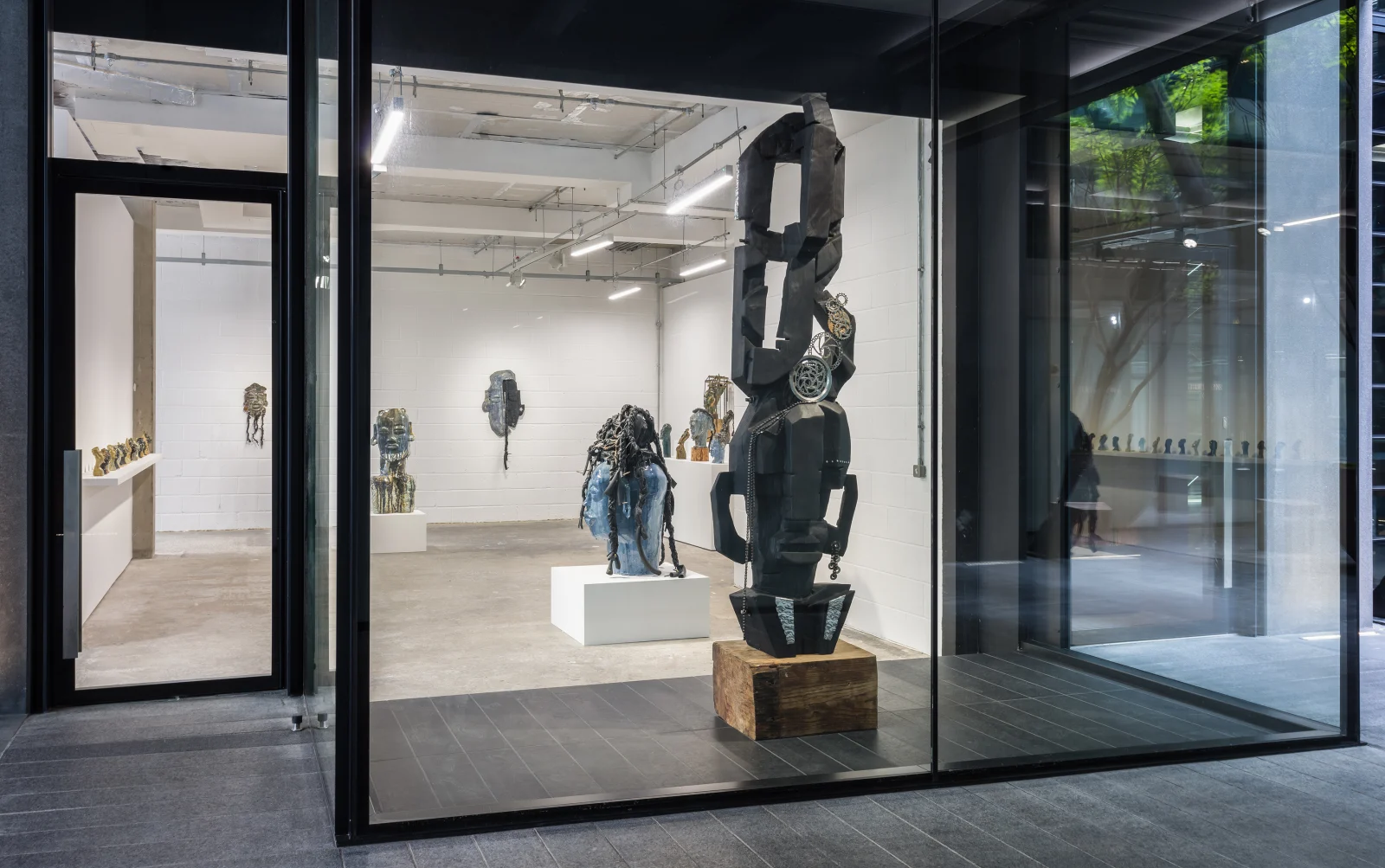
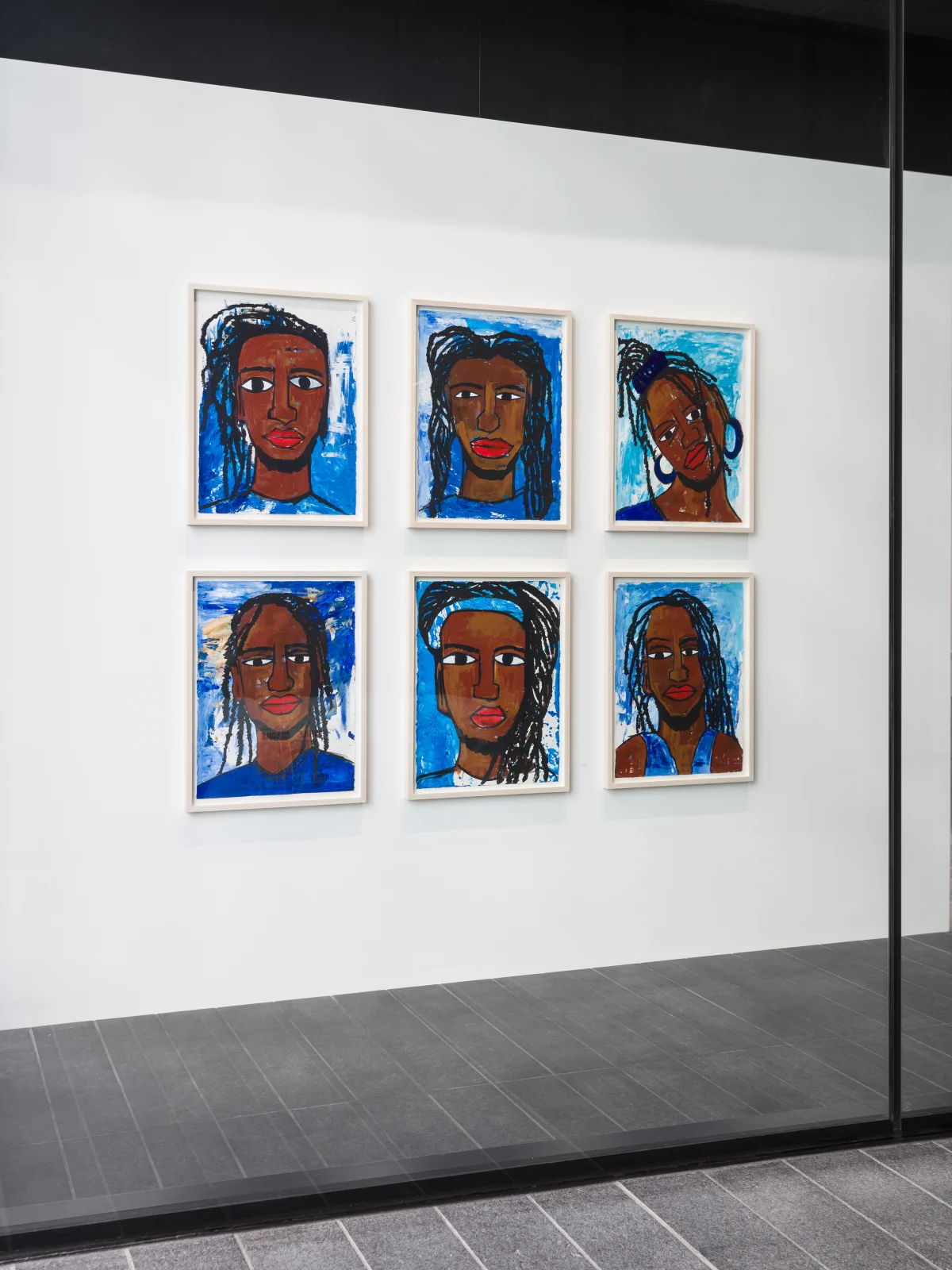
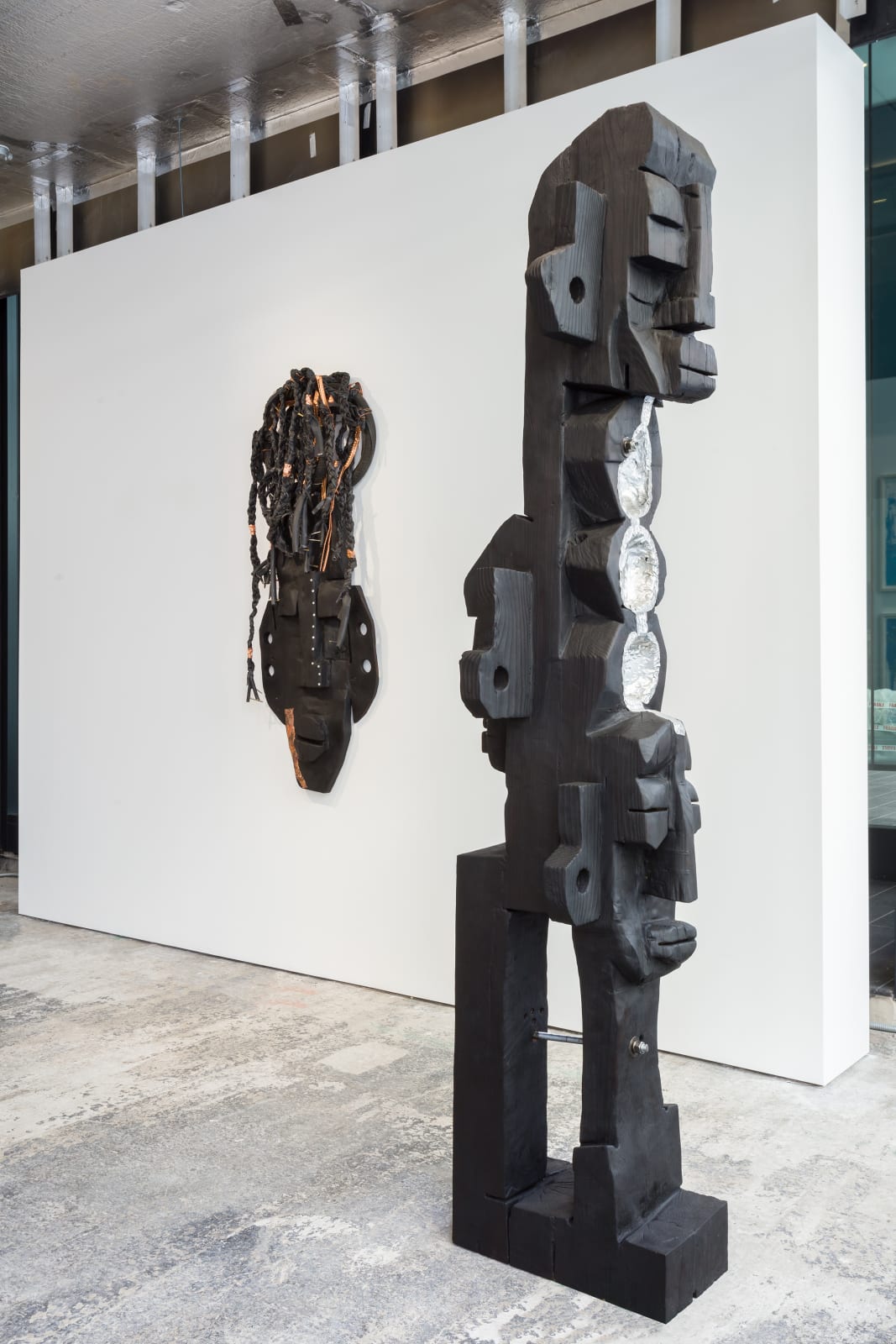
Exhibition film, June 2021


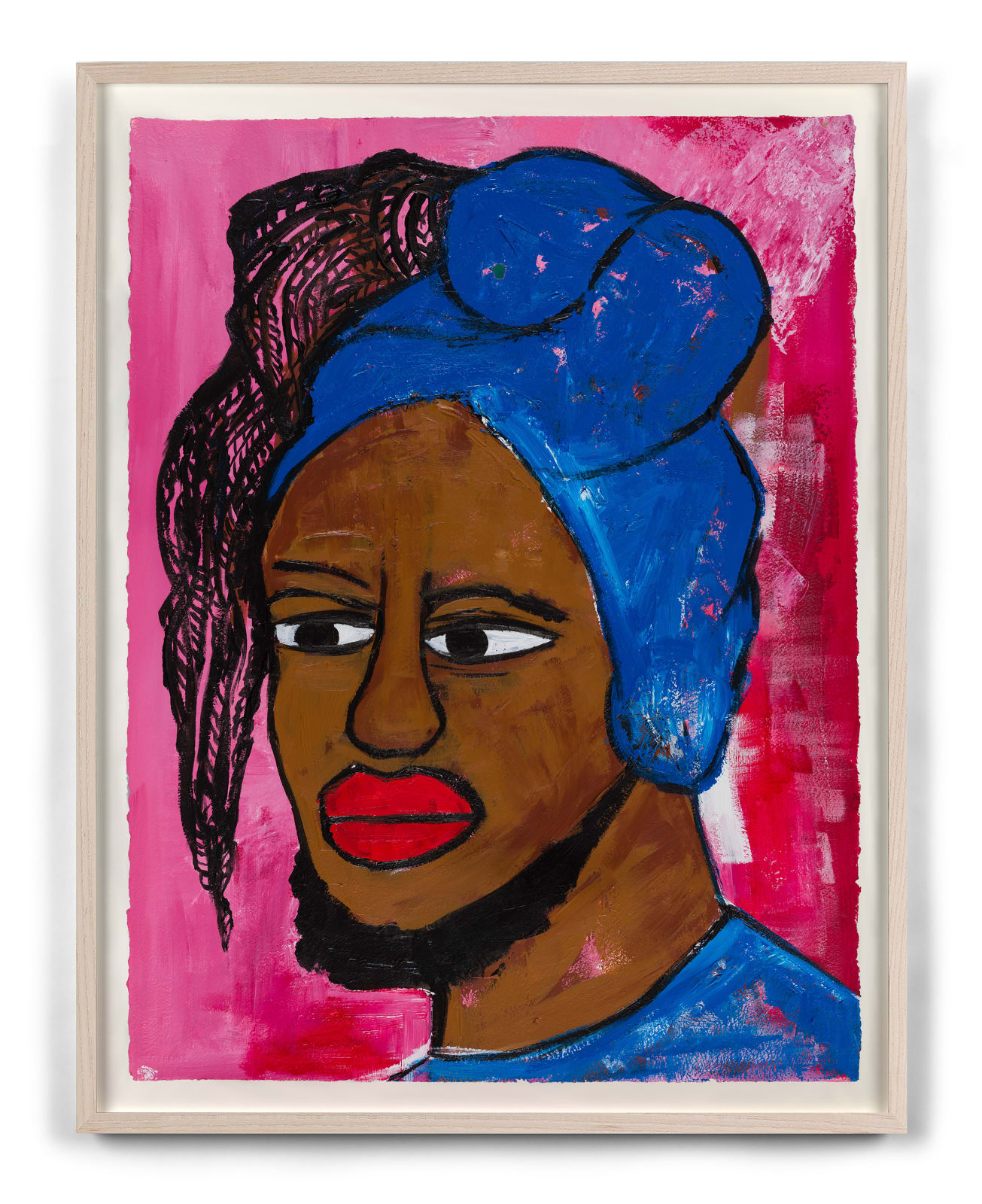









“I use found materials in most of my work. I appreciate what people don’t appreciate. I come from a community that wasn’t embraced by people, the LGBT community. As an artist I decided to find what people call us, rubbish and trash. How about if I come out and represent the trash in a very modern and beautiful way? Every piece out there that can be reused can turn out beautiful.”
- Leilah Babirye












News and press

Leilah Babirye lives and works in Brooklyn, New York. ‘Leilah Babirye: Ebika Bya ba Kuchu mu Buganda (Kuchu Clans of Buganda) II’ at Stephen Friedman Gallery will be Babirye’s first solo exhibition in the UK and Europe. Her work will be included in the 3rd Coventry Biennial from 8 October 2021 to January 2022 at Herbert Art Gallery & Museum.
Babirye studied art at Makerere University in Kampala (2007–2010) and participated in the Fire Island Artist Residency (2015). In 2018, the artist was granted asylum in the US. Later that year Babirye presented her first solo exhibition at Gordon Robichaux, New York. In 2019, Babirye’s work was included in ‘Flight: A Collective History’ at the Hessel Museum of Art, Bard College, Annandale-on-Hudson (curated by Serubiri Moses) and in ‘Stonewall 50’ at The Contemporary Arts Museum (CAMH), Houston, Texas. In 2020, her work featured in ‘Intimate Companions’ at Mary Heaton Vorse House, Provincetown, and in ‘Art on the Grid’, a Public Art Fund exhibition with JC Decaux on billboards across New York City. Babirye is also represented by Gordon Robichaux, New York, whose second solo exhibition with the artist opened in October 2020.
Profiles on Babirye and her practice were recently published in Wallpaper* Magazine, Cultured Magazine, New York Magazine, Modern Painters, OUT Magazine and ‘Raw Material: A Podcast’ from SFMOMA (Season 4; Luvvers). Her solo exhibition at Gordon Robichaux in 2020 was reviewed in the New York Times, Artforum and The New Yorker.


